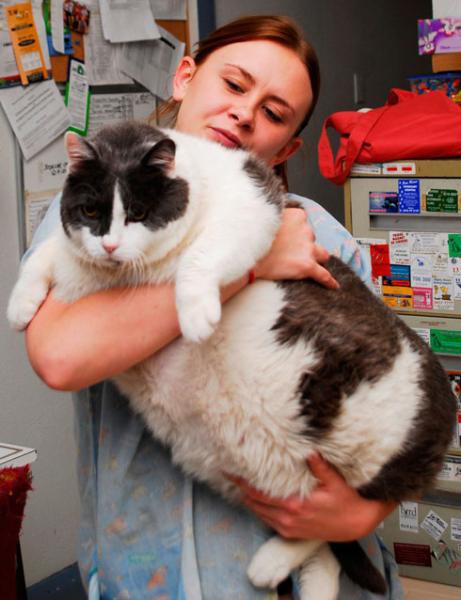
Orange cats have a reputation for being friendly and affectionate more so than other patterns like the tortoiseshell cat. This is because the outside world poses many more risks to a cat than staying indoors.

Neutered cats tend to live longer because neutering prevents reproductive diseases and neutered cats are less likely to roam.
Average lifespan of a fat cat. The average lifespan of an outdoor cat is only 2 -3 years which is such a lower amount than the 15-20 years we mentioned earlier. There are multiple reasons for this and they are often things an indoor cat will never experience such as hazardous traffic diseases human traps predators poor weather conditions even theft. Fat cats are much more likely to develop diabetes arthritis high blood pressure kidney disease cancer and more.
Your fat cat will absolutely have a shorter lifespan than a healthy weight cat. There is nothing cute about that. Here are the top three ways to know that your cat is fat.
1 - Put your hands on your cat. It is normal and healthy for a cat to have a thin layer of flesh between their skin and bones. If you have to press hard to feel a bone or can not feel bones at all your cat.
How long do cats live. The average lifespan of a cat overall in the UK is 14 years according to a study carried out by the Royal Veterinary College. Average cat lifespan Cats may not really have nine lives but factors such as diet healthcare and environment can have an impact on how long a cat can live.
Neutered cats tend to live longer because neutering prevents reproductive diseases and neutered cats are less likely to roam. Lifespan is an average of 14 20 years but can be even longer. The British Blue pictured here is Harvey.
Quite difficult to get a picture of him because everytime the camera pointed at him he would turn the opposite way delibrately me thinks. 27 Zeilen The feline life expectancy that is quoted in reference texts varies but a good. They have the same average lifespan as does the particular breed of felines they belong to.
Orange cats have a reputation for being friendly and affectionate more so than other patterns like the tortoiseshell cat. Individual temperament is largely determined by the cats breed however. Roughly 80 of ginger cats are male.
Female ginger cats are less common because they must inherit two copies of. The average cat lifespan at home is around 14 to 17 years while outdoor cats often only make it to 7 years old. This means that indoor cats live on average twice as long as their outdoor cat counterparts and in many cases even longer.
This is because the outside world poses many more risks to a cat than staying indoors. In the wild the average lifespan of a cat is anywhere from 2 to 16 years. A house cat has a longer average lifespan of 12 to 18 years though its not uncommon for domestic kitties to live into.
Anyone with a cat in their life will know that theyre probably going to stick around for a while with the average lifespan of indoor house cats these days hitting an impressive 12 to 15 years. This has increased dramatically over the past few decades with the average cat living to just seven years in the early 1980s and just over nine years in 1995. If you want a short answer a cats lifespan is relatively large when compared with other pets.
The average lifespan of a cat is anywhere around 15 years. Having said that finding teenage cats more than that or sometimes even in twenties is not an uncommon sight. Some cat breeds are big some are fluffy some are short some are bald – cats run the gamut.
And just like dogs different cat breeds have different life expectancies. While a number of cat breeds are expected to live to be around 12 years of age others routinely make it. What Affect Average Lifespan of a Cat.
One important factor is from the environment where they live in. For wild cat they commonly life for around four to five years lifespan. However for domesticated cat they will have longer lifespan which is around fifteen to twenty years and even longer.